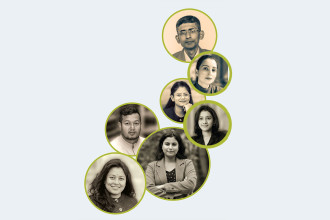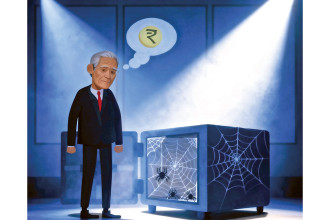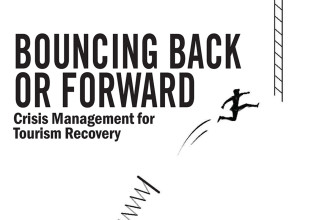
As the date for the annual budget draws near there are various speculations and expectations from not only economic experts but the general population. The government has, in fact, already started preparations for the budget and has conducted discussions with various stakeholders to make the budget as inclusive as possible. In a recent interview with Business 360, Finance Minister Janardan Sharma mentioned that the main priority of the upcoming budget will be import substitution, which is the major problem at this point of time. His focus also remains on encouraging agriculture and employment generating initiatives.
In this issue of Business 360, we spoke to a few experts on whether the government truly reflects the people’s aspirations in its yearly fiscal budget or is it a political tool that often fails to deliver on progressive development measures? We also asked them about the three things they would want the upcoming fiscal budget to include and why? Here is what they had to say.
Sujeev Shakya
Chairperson, Nepal Economic Forum
[gallery columns="1" link="file" size="full" ids="24158"] The budget in Nepal over the years has been a tool for the government to come up with policies and programmes that are discussed without understanding what this really means to the country and its economic status. In a country where people don’t make individual budgets at home, it’s very fashionable to talk about the budget. It’s what I call the annual jatra (festival), where there are people who come and discuss economics once a year. The people talk about the do’s and don’ts during the budget and once it has been announced everything seems to be forgotten. The budget we must realise is not just about one statement that you prepare and announce annually; it is about the entire system, a budgetary control. When talking about budgetary control, we are talking about accountability, tracking the expenses, the government process of regulations that are followed and to track it as it is a part of a larger system. In contrast, we Nepalis only tend to get excited whenever the budget is being drafted and hold discussions on it only then. The budget should not only be a topic of annual discussion and it should not be forgotten once it is drafted. On a personal level, I have no expectations from the budget because it has become a tool to disburse largesse to the political cadres of the ruling party. Business cartels have been able push different regulations that are either promoting protectionism, or working against the interest of foreign direct investment and technology transfer. Here, we can see one business group or other business groups or different business cartels influencing or trying to influence the budget-making process. Budgeting has become a great opportunity for all the title/position holders to make statements. We see the same people talking about the same topic every other year. Three things that I wish the government did in the upcoming budget are:- Understand the budget as a part of budgetary control exercise.
- Look at the budget as a part of the annual plan or five-year plan and how it dovetails into each other.
- Budgeting has to have a larger consultative exercise and it should not be limited to only a few people sitting in a closed room going through a document that people forget and talk about only the next year.
Ramesh C Paudel, PhD
Associate Professor & Reader, Central Department of Economics, Tribhuvan University
[gallery columns="1" link="file" size="full" ids="24159"] The philosophy of the current political system of Nepal is based on the rule of representatives of the people working on their behalf. If it was truly practiced, it would have reflected the people’s aspirations in the fiscal budget and other programmes. Unfortunately, what has been happening in Nepal is that a handful of leaders of the political parties have become hostile to the representative system, and they decide everything for all. This has happened at all levels of government. More importantly, the government does all the budgetary allocations in their own interest and without any solid research base via the finance minister. The ordinary people and their representatives even do not know how the megaprojects are selected, designed, and developed. Also, the methodology of allocation of the budget is not transparent. It seems that people have obtained the political right to select the representative via tenure elections but the right for economic and developmental decision-making has been far away from the real practice yet. Our democracy and the adopted system really need to seek a way to involve a wider group of people in the budgeting process so that the fiscal administration could be more meaningful and match our people’s aspirations and the concept of democracy. Thus, in the present practice, our political system has failed to deliver progressive development measures for the betterment of the people belonging to the lower economic class. The three things I expect from this year’s fiscal budget are:- A complete restructuring of the budget based on democratic fundamentals and norms so that people’s aspirations are reflected in the programmes.
- Focus on quality infrastructure, agriculture, education and health, and tourism with a long-term development vision.
- Link agriculture with small and medium-sized industries for industrialisation, link education with our production system so that migration of youths can be reduced, and link the production with our consumption patterns so that the pressure on foreign reserves is minimal.
Gokarna Awasthi
Director General, Federation of Nepalese Chambers of Commerce and Industry
[gallery columns="1" link="file" size="full" ids="24160"] Budgeting is basically a political document whereby the ruling party includes its own agendas and promises to deliver important aspects to the people. It is a kind of a manifesto as well. I would personally say that the budget is definitely a political document but at the same time it is also an economic document. Both are significant for the country and the document has certain rules that should be followed while preparing it. At the moment, we have five-year plans and the government has to include and cover all the economic aspects of the country. On the other hand, we have a medium-term expenditure framework and in that particular framework we have certain commitments and that have to be included in the budget. Similarly, we have fixed-term expenditures such as loans payment to international parties and certain international commitments and regular commitments like providing salaries to the government officers, teachers and so on. In addition, there are multi-year projects too. The country’s budgeting system is different from what we do at our homes. It is exactly opposite in this case. For instance, we spend money according to the money we own or have but for the country’s budgeting, the first step is to calculate the potential revenues from different government offices. The second step is to locate resources and match them with the projects that the government introduces. The ruling party has its own interests but the budgeting space is really low. Due to low budgeting space for the party, the most dangerous aspect in the budgeting system at the moment in Nepal is “Let’s first introduce programmes/projects, the budget will flow on its own after we have started the programmes/projects.” Here, people tend to depend on international donors. This kind of trend has been seen in the country for many years now. The dependent nature for budgeting and the minimal research on the cause is a burning issue. We can read and watch in the news that economists have been raising their concerns for the country as there has been very little capital expenditure. Political parties tend to forget the money they are spending is the public’s money. They have this misconstrued thought that the money obtained is through the government offices so it is the government's. Similarly, the public too don’t know about this fact. Even when there is any protest programme citizens vent their anger on the government by damaging public property. What they fail to realise is that whatever the government spends is actually our money which we pay through various taxes. What I have personally noticed is many citizens are never satisfied with the budget and lack proper ownership. The three things I would want to be included in this year’s budget are:- We are under liquidity and external sector stability pressure. This kind of pressure is seen almost every other year but this year it has extended for a longer period of time because the market revived quite rapidly after the aftereffects of the pandemic started waning. We should work to avoid this kind of scenario and plan short-, medium-, and long-term activities to bring money into the country such as increasing remittances by linking them with proper banking channels and providing facilities to those who are abroad. We should also make available more unique tourism packages and allow the use of Indian currency. The other areas of focus should be exports and foreign direct investments. These kinds of activities will help in a continuous cash flow in the country.
- Service from the government and goods should be highlighted. It could be tourism, goods, manufacturing companies. The government should make capital easily accessible. It should also make the process of registering and opening big companies easy and convenient.
- Focus should be on the revival of industries and various other service sectors that have been hit hard by the pandemic. Services provided by the government should not be compromised such as on health, education, drinking water and security. For example, there are plenty of new schools but we lack quality so the government should focus on quality rather than just quantity.
Sameer Khatiwada
Economist, Asian Development Bank
[gallery link="file" columns="1" size="full" ids="24161"] Every year when the budget is announced by the Finance Minister, a wave of optimism tends to spread in Kathmandu. Budget announcement is ‘forward looking’ and the allocations tend to reflect the government’s aspirations for the coming year. Media houses carry new stories highlighting all the planned spending measures. We ‘celebrate’ the announcement but when we look back at the implementation, our track record is dismal. In the current fiscal year (2078/79), in the first eight months, we have only spent about 20.4% of the federal capital expenditure allocated in the budget. In the last fiscal year (2077/78), we managed to spend 46.2% of the allocated budget. At the province level, the track record is even less encouraging. Given our inability to spend our development budget for most of the year, we tend to engage in last minute spending. Decisions are made in a hurry and funds are allocated to projects that make no sense. This practice has fuelled corruption and mismanagement at all levels of the government. Our inability to spend development budget has become a chronic problem in Nepal. We have become used to it and in a perverse way, this has become the new normal. We need to rethink our budget and how we allocate resources to meet our development objectives. To temper the economic impact of Covid 19, the government introduced tax cuts, fuel subsidy and government’s contribution to social security schemes. These were all very good initiatives and should have helped people and businesses. Assessing whether these policies worked is difficult, but what is revealing is the take-up rate of different programmes and policies. For example, providing low interest loans to new firms and SMEs is good, but how many firms made use of this policy measure? 1 firm, 10 firms or 1,000 firms? This makes an enormous difference in assessing whether the programme was able to create jobs. In the wake of Covid 19, informal employment has increased in Nepal as it normally tends to do after a crisis of such nature. Informal sector acts as a buffer, absorbing workers who have been laid off in times of crisis. Nepal’s economic response to Covid 19 did include relief measures for informal workers, but the implementation has been poor because of low capacity at the local level and resource constraints. The policy measure looked good on paper and sounded nice during the budget speech last year, but has not made any tangible difference. I would caution against prematurely celebrating ‘forward looking’ expenditure items in the upcoming budget. Instead of celebrating what we plan to do, let’s examine what we have done in the recent past and judge our plan for the next fiscal year. If Nepal makes steady progress in mass vaccination and gets the pandemic fully under control, then in 2022 and 2023 the economy is expected to grow by about 4% to 5%. Now that we are slowly emerging from the pandemic, I would like the finance minister and his team to focus on areas of support that are critical for a sustainable recovery. Three areas of focus could include:- Measures to help the private and business sector to grow and create jobs, particularly for firms who are facing difficulty staying afloat because of Covid 19.
- Spending on logistics and infrastructure to promote export and intra-regional trade in South Asia.
- Spending on strengthening the social sectors including education, health and social protection to build resilience and preparedness for climate change, pandemic and other disasters.
Published Date: May 31, 2022, 12:00 am
Post Comment
E-Magazine
RELATED Opinion





